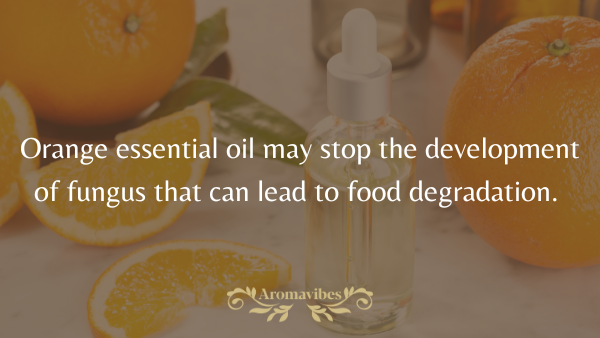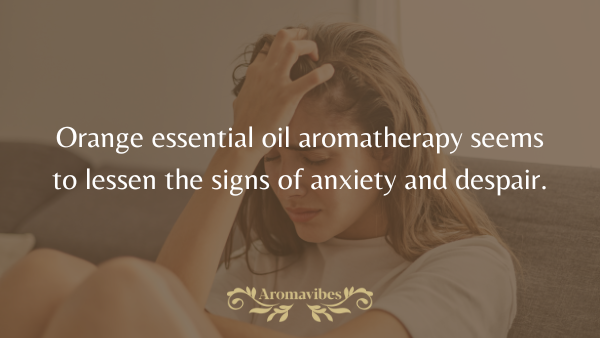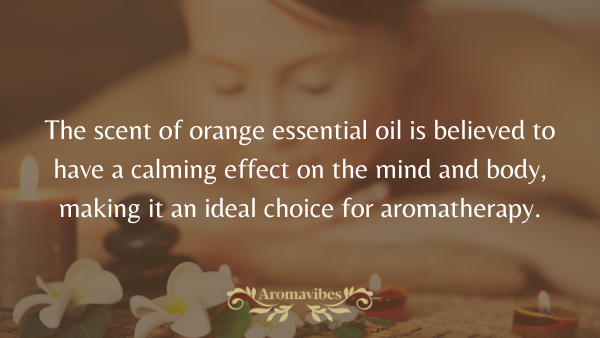Orange essential oil comes from the peel of oranges through a process of steam distillation. It has a fresh, citrusy scent and people widely use it for its therapeutic properties.
Most frequently people refer to it to as Sweet Orange Essential Oil. On the contrary, Citrus aurantium plant fruits are used to create Bitter Orange Essential Oil. Citrus sinensis is a natural hybrid of the botanicals pummelo (C. maxima) and mandarin (C. reticulata).
Botanists think that it originated between the southwest of China and the Himalayas. Despite the fact that it does not grow wild anywhere in the world, the exact source of Citrus sinensis is unspecified. At one point, the Sweet Orange tree (C. aurantium var. sinensis) was regarded as a variety of the Bitter Orange tree (C. aurantium amara).
History of Orange Essential Oil
According to historical accounts, Christopher Columbus brought orange seeds to the Americas in 1493, and they eventually made it to Haiti and the Caribbean. Portuguese explorers presented orange trees to the West in the 16th century. Spanish explorer Ponce de Leon brought oranges to Florida in 1513. Italian traders brought orange trees to the Mediterranean region in 1450. Eastern Africa and the Middle East obtained oranges in 800 AD.
The Sweet Oranges that Portuguese explorers transported back from China were introduced to Europe and West African woodlands in the 15th century. Sweet oranges were delivered to England in the sixteenth century. Europeans cherished citrus fruits mostly due to their medicinal properties, but orange soon was accepted as a fruit. The rich soon started cultivating it, planting their trees in personal “orangeries.” The orange is regarded as the world’s oldest and most popular tree fruit.

Benefits of Orange Essential Oil
1. Pain Relief
Natural anti-inflammatory characteristics found in orange essential oil may aid to lessen pain and inflammation. By blending it with a carrier oil, such as coconut oil, you can apply it topically to the injured area.
Researchers tested the efficacy of using a mixture of ginger and orange essential oils on the skin to treat knee pain in 2008. Those who used the essential oil blend reported stronger short-term pain alleviation as compared to a control group, but the oil didn’t appear to be effective for long-term pain.
A 2017 study featuring participants with bone fractures examined whether inhaling orange essential oil could aid with pain. Interestingly those who inhaled orange oil experienced less pain than those in the control group.
2. Antimicrobial Activity
In one study, researchers examined the impact of orange essential oil on antibiotic-resistant strains of Staphylococcus aureus (staph bacterium). Little amounts of orange essential oil killed bacteria without hurting the cultured human cells when applied to infected cells.
Moreover, orange essential oil may stop the development of fungus which can lead to food degradation. Another investigation revealed that orange oil offered some defence against four types of fungus.

2. Helps with Anxiety and Depression
Orange essential oil aromatherapy seems to lessen the signs of anxiety and despair.
In a 2013 study, researchers discovered that orange essential oil aromatherapy decreased the pulse rate and stress hormone levels in kids getting oral treatment.
Likewise, women in labour who inhaled orange essential oil experienced less anxiety than those in the control group who inhaled distilled water in a 2015 study.

3. Anticancer Activity
Orange essential oil contains limonene, which has been studied as a possible cancer therapy. A study from 2012 indicated that orange oil rich in limonene both suppressed the development and boosted the demise of colon cancer cells in vitro. A 2017 study discovered that lung and prostate cancer cell lines’ ability to develop in culture was hindered by orange essential oil. The lung cancer cell line also demonstrated a rise in cell death. They also discovered that orange essential oil has antioxidant properties.
4. Boosts Exercise performance
A brief 2016 study examined how orange flower essential oil inhalation affected student athletes’ ability to exercise. The scientists discovered that individuals who inhaled the oil had much shorter running times as well as improved lung function. To prove this benefit, more study is required.
Uses of Orange Essential Oil

- Aromatherapy: You can use orange essential oil in aromatherapy to reduce stress, anxiety, and depression. The scent of orange essential oil has a calming effect on the mind and body, making it an ideal choice for aromatherapy.
- Skincare: Orange essential oil is often used in skin care products due to its high content of antioxidants and vitamin C. It can help improve the appearance of skin by reducing the appearance of fine lines and wrinkles, and by promoting collagen production.
- Household cleaner: Also you can use orange essential oil as a natural, non-toxic household cleaner. You can add it to water and use it to clean surfaces, floors, and even laundry.

Final Thoughts
It is important to note that while orange essential oil may offer these potential benefits, you should always use it with caution and in moderation. You should dilute it with a carrier oil before topical use, and you should not be ingest it without the guidance of a healthcare professional. Additionally, those with sensitive skin or allergies to citrus fruits should avoid using orange essential oil.
To learn more about orange essential oil benefits you can check this article, Organic facts and Young Living. You can also check Aromavibes for a wide range of essential oils!

